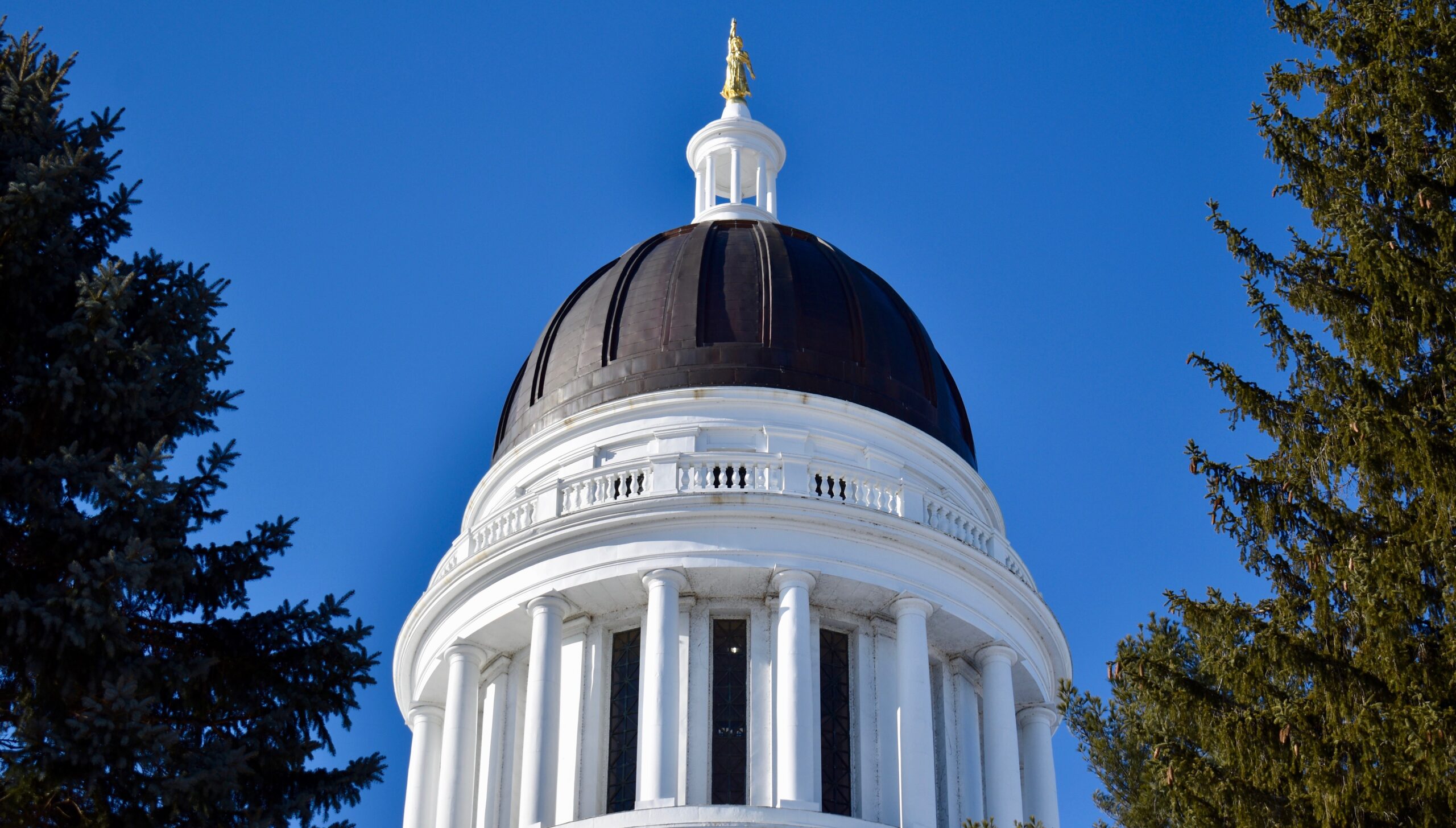AUGUSTA — Legislative leaders on both sides of the political aisle Tuesday defended a $6.7 billion state budget and tax bill crafted largely in secret negotiations between party leaders, saying they ran out of time to follow a more public process.
Changes to a budget bill that was previously approved on a 9-4 bipartisan vote of the Legislature’s budget-writing Appropriations Committee came in the form of a series of amendments, including one that dramatically revamps the state’s tax policy.
Those proposed changes were presented to lawmakers in a series of caucus meetings held Monday night and Tuesday morning at the State House and at private locations outside the Capitol complex in Augusta. The public was not invited to the meetings and no notice was given to the press.
By Tuesday morning specific details of the proposed changes were still unclear, as at least one staff member for House Speaker Mark Eves, D-North Berwick, told a reporter that content of the budget deal would not be made available to the public until after the Legislature votes.
The lack of public details on the changes and the refusal of legislative leaders to release specifics or to allow reporters access to their meetings prompted the resignation of Mal Leary — a veteran state government reporter for the Maine Public Broadcasting Network — from the Legislature’s Right to Know Advisory Committee
Leary, who declined comment for this report, did issue a letter to his fellow board members writing about the secret deal reached by Legislative leadership.
“All of these changes, which include a rewrite of the tax code, will be presented as an amendment to the budget with no hearing or vote by the Appropriations Committee,” Leary wrote. “In short, they are making us as bad as D.C., where votes are taken before members know what they are voting on, let alone the public. I have protested this travesty by resigning from the Right to Know Advisory Committee. I want no part of the process that excludes the public from even knowing about proposed changes in law that affects them.”
State Rep. Peggy Rotundo, D-Lewiston, said the process employed by Eves, the Senate President Mike Thibodeau, R-Winterport, the Senate Minority Leader Justin Alfond, D-Portland and House Minority Leader Ken Fredette, R-Newport, was unlike anything she’s seen in her eight terms of service in the state Legislature.
Rotundo, who serves as the House chair of the budget-writing Appropriations Committee, said the amendments being proposed to the bill her committee produced on the budget were substantial.
She also said the process that employed a number of closed-door negotiations between just Eves, Thibodeau, Alfond and Fredette “was not the normal process.”
“Normally all of this would have been done in Appropriations, we would have voted out a budget, which we did,” Rotundo said.
But control of the budget was largely wrested from the committee leaders after its vote on the budget bill in an effort to reach compromise around tax cuts and welfare reforms.
A number of lawmakers Tuesday lamented the lack of transparency in the process, saying they were concerned there was an increasing trend at the State House to evade difficult discourse and avoid possible conflict by holding meetings beyond the public’s view.
State Rep. Jeff Timberlake, R-Turner, a member of the Appropriations Committee, also urged his colleagues to hold more of their conversations about the budget in public during one late-night session in May. Timberlake also said he wanted the committee to take votes on the budget in public so everyone would know where lawmakers stood on the plan.
“I said at the time, it’s time we moved this out (in public) and that we go line by line and take our votes at the table,” Timberlake said, implying lawmakers were actually making decisions behind closed doors and not simply discussing the state’s budget.
While Maine’s public meeting law does not specifically address the Appropriations Committee, it does list topics that government bodies in Maine, including the Legislature, can discuss in executive or closed-to-the-public meetings.
But the law is clear that “budgets and budget proposals” are not among those items that can be discussed beyond the view of the public.
Also unclear is whether lawmakers, when meeting in their respective party caucuses, should be allowed to discuss official state business or whether those discussions should be restricted to party business, like a conversation about which candidates they may want to run in the next election.
When pressed Tuesday about what his caucus was discussing on Tuesday morning during a meeting the press and the public was asked to leave, Fredette, the House minority leader, offered no comment.
When asked if the Republican caucus discussion was party business or regarding the state budget, Fredette said simply, “I’m not going to comment on that. I’m not going to talk about what goes on in our caucus.”
Lawmakers had only a few hours to consider the changes the amendments would make, including some that increased and expanded the state’s sales tax and reduced income taxes for a large swath of Maine taxpayers.
Fredette said the details of how he, Alfond, Eves and Thibodeau got to their agreement were largely irrelevant, as the bill would bring a tax cut to a large number of Maine residents and would be broadly supported by lawmakers.
Fredette and Thibodeau also dismissed any concerns that specific law changes or new tax and spending policies were being put in place without due vetting before the public.
Both Thibodeau and Fredette said most of the general concepts that ended up in the final budget proposal advanced by party leaders were the subject of public hearings earlier in the year.
But when asked if there had been any public hearings on the specific law changes he and his colleagues were on the verge of voting on Tuesday, Fredette said “no.”
“Any of the amendments coming forward today haven’t had public hearings,” Fredette said. But Fredette also said that was normal and amendments made on the floors of the House or Senate were never given any public vetting.
But even when a bill is changed substantially by amendments, it can and is frequently referred back to the committee of jurisdiction where it is subject to further consideration and additional scrutiny regarding questions lawmakers and the public may have about the changes.
State Rep. Diane Russell, D-Portland, who is serving her fourth term in the House and sits on the Legislature’s Taxation Committee said she was increasingly concerned lawmakers were not being transparent as they crafted tax and spending bills.
“I think the public should have an opportunity to weigh in,” she said. But lawmakers were facing a deadline in needing to pass a budget by June 30 in order to avoid a government shutdown, Russell said. “Unfortunately we have zero time as we are about to shut the state down and I can’t justify shutting the state down.”
Still, Russell said she believed some of the aversion to doing the public’s business in public was bordering on corruption.
Tuesday state Rep. Adam Goode, D-Bangor, House chairman of the Taxation Committee, said he was satisfied that most of the tax proposals in the plans being advanced by leadership had been discussed.
Goode went on to say many of those discussions, which included the so-called “chairs and leads” — the co-chairs of the committee and the lead lawmakers from the Senate and House for each party — were held in private meetings that were not noticed to the public or open to the press.
“There are types of legislators who are absolutely uncomfortable in public talking about difficult things and that is not right,” Goode said. He also said a number of party leaders, “and I’m not going to name names,” met that description.
“If somebody tells me what they think in an effort to convince me to vote a certain way and they can’t say it publicly I’m a lot less likely to follow their advice,” Goode said.
Advocates for open government in Maine and supporters of the state’s Freedom of Access Act, which governs public meetings and records, said Legislative leaders continue to sidestep the law and ignore its intent.
John Christie, the editor-in-chief of the Maine Center for Public Interest Reporting, an Augusta-based non-profit that produces investigative journalism for a variety of newspapers across the state and runs its own news website, said Maine’s FOAA law seemed clear to him.
“The law literally, specifically says, you cannot have an executive session about discussion of a budget or a budget proposal,” Christie said. “The intent of the FOA Act is that anything involving the public’s interest should be conducted in public, that’s the spirit of the law.”
The above story was originally published by the Sun Journal.







